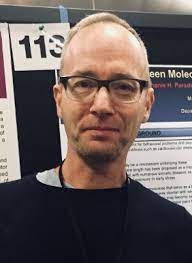Article
Treatment-Resistant Depression Comes With Large Societal Burden
Author(s):
TRD episodes resulted in more inpatient bed-days and lost workdays compared to non-TRD episodes.
Johan Lundberg, MD, PhD

There are a number of negative outcomes for depressive episodes in patients with treatment-resistant depression, according to new research.
A team, led by Johan Lundberg, MD, PhD, Centre for Psychiatry Research, Department of Clinical Neuroscience, Karolinska Institutet, estimated the burden of TRD in a large population-wide cohort and developed a prognostic model for clinical use.
The Burden of Depression
The societal and individual impact of TRD is not currently known in total. The same is true for the potential to prognosticate TRD.
However, a major issue is there is limited generalizability of many observational studies on TRD.
In the population-based observational cohort, the investigators used data from the Stockholm MDD Cohort for episodes of major depressive disorder between 2010-2017 that fulfilled the predefined criteria for TRD—at least 3 consecutive antidepressant treatments.
The investigators sought outcomes of psychiatric and nonpsychiatric comorbid conditions, antidepressant treatments, health care resource utilization, lost workdays, all-cause mortality, and intentional self-harm.
In addition, in the prognostic model, the main outcome was TRD.
Comparing Depressive Episodes
There were 158,169 unipolar MDD episodes involving 145,577 patients included in the analysis. The episodes took place between 2012-2017 and the median age of the patients was 42 years.
Of the identified episodes, 11% (n = 12,793) fulfilled the criteria for TRD. The results show the median time from the start of a depressive episode to TRD was 552 days and selective serotonin reuptake inhibitors were the most common class of antidepressant treatment in all treatment steps.
In addition, 46.2% (n = 5907) of patients received psychotherapy at some point prior to initiation of their third pharmacological antidepressant treatment.
TRD episodes also resulted in more inpatient bed-day (mean, 3.9 days; 95% CI, 3.6-4.1) compared to non-TRD episodes (mean, 1.3 days; 95% CI, 1.2-1.4). TRD episodes also resulted in more lost workdays (mean, 132.3 days; 95% CII, 129.5-135.1) compared to non-TRD episodes (mean, 58.7 days; 95% CI, 56.8-60.6) 12 months after the index date.
The investigators also found anxiety, stress, sleep disorders, and substance use disorder were more common comorbid conditions in TRD episodes and intentional self-harm was more than 4 times more common in TRD episodes compared to non-TRD episodes.
The all-cause mortality rate for patients with MDD in the TRD group was 10.7 per 1000 person years at-risk, compared to 8.7 per 100 person years at-risk in the non-TRD group (HR, 1.23; 95% CI, 1.07-1.41).
The median time from the start of the first antidepressant treatment to the start of the second was 165 days.
The median time from the start of the second antidepressant to the third was 167 days.
Finally, the severity of MDD, which was defined by the self-rating Montgomery-Asberg Depression Rating Scale (MADRS-S) at the time of diagnosis, was identified as the most important prognostic factor for TRD (C index = 0.69).
“In this cohort study, TRD was a common variant of MDD when including patients from both health care types, which is associated with a high disease burden for both patients and society,” the authors wrote. “The median time between initiation of new antidepressant treatments was longer than recommended in current treatment guidelines, suggesting room for more structured and timely depression care.”
The study, “Association of Treatment-Resistant Depression With Patient Outcomes and Health Care Resource Utilization in a Population-Wide Study,” was published online in JAMA Psychiatry.




